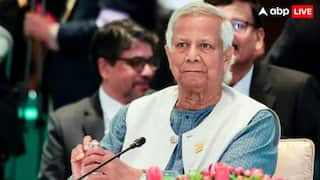UN Security Council reforms should not be blocked by procedural tactics: Jaishankar at UNGA
United Nations, Sep 24 (PTI): Underlining that India is prepared to take up greater responsibilities, External Affairs Minister S Jaishankar said on Saturday that negotiations for the much-needed UN Security Council reforms should not be blocked by procedural tactics and naysayers cannot hold the process "hostage in perpetuit.

United Nations, Sep 24 (PTI): Underlining that India is prepared to take up greater responsibilities, External Affairs Minister S Jaishankar said on Saturday that negotiations for the much-needed UN Security Council reforms should not be blocked by procedural tactics and naysayers cannot hold the process "hostage in perpetuity.” India, currently a non-permanent member of the 15-nation UN Security Council, will complete its two-year tenure in December this year when it will preside over the Council.
"India is prepared to take up greater responsibilities. But it seeks at the same time to ensure that the injustice faced by the Global South is decisively addressed,” Jaishankar said in his address to the UN General Assembly’s high-level General Debate.
"In our term, we have acted as a bridge on some serious but divisive issues confronting the Council. We have also focused on concerns such as maritime security, peacekeeping and counter terrorism.
"Our contributions range from providing technology with a human touch to ensuring the safety and security of UN Peacekeepers,” Jaishankar told the 193-member UN General Assembly.
Underlining that India believes that multipolarity, rebalancing, fair globalisation and reformed multilateralism cannot be kept in abeyance, Jaishankar said that the call for reformed multilateralism – with reforms of the Security Council at its core – enjoys considerable support among UN members.
"It does so because of the widespread recognition that the current architecture is anachronistic and ineffective. It is also perceived as deeply unfair, denying entire continents and regions a voice in a forum that deliberates their future,” he said.
He emphasised that New Delhi’s call is to allow serious negotiations on such a critical matter to proceed sincerely. “They must not be blocked by procedural tactics. Naysayers cannot hold the IGN process hostage in perpetuity.” In these turbulent times, it is essential that the world listens to more voices of reason. And experiences more acts of goodwill. India is willing and able on both counts, he said.
India has been at the forefront of the years-long efforts to reform the Security Council, saying it rightly deserves a place as a permanent member of the Council, which in its current form does not represent the geo-political realities of the 21st Century.
The G4 nations of Brazil, Germany, Japan and India had this week expressed concern at the slow pace of the Inter-Governmental Negotiations process and decided to intensify dialogue with all pro-reform Member States, including other countries and Groups, to aim for achieving concrete outcomes in a fixed time-frame.
The group had expressed disappointment at concerted attempts to stall the IGN process, and renewed their commitment to addressing the issue in a decisive manner and with increased urgency in the 77th Session of the UNGA.
The G4 Ministers had welcomed the clear recommendation of the President of the 76th General Assembly Abdulla Shahid to "gradually move the process towards text-based negotiations”, and expressed hope that this guidance would be followed by all delegations in the 77th General Assembly Session.
India, which is Chair of the Counter Terrorism Committee this year, would be hosting a special meeting of the Committee in Mumbai and New Delhi on October 28-29. The meeting is aimed at highlighting increase in use of new technologies by terrorists and exploring course of action to effectively deal with this threat.
Inviting all member states to participate in the meeting, Jaishankar said the world needs to create a global architecture that responds to the new tech tools deployed against open, diverse and pluralistic societies.
"India has always espoused a cooperative, inclusive, and consultative approach to international relations,” he said.
"We believe and advocate that this is not an era of war and conflict. On the contrary, it is a time for development and cooperation,” he added.
Jaishankar said that the year 2022 is an important milestone in India's journey towards growth, development and prosperity as the country is celebrating 75 years of its independence.
"This ‘New India’, under the visionary and dynamic leadership of Prime Minister Narendra Modi, is a confident and resurgent society. Its agenda for our centenary will be achieved through the five pledges that we committed to on Independence Day,” he said.
He said that the five pledges are - to make India a developed country in the next 25 years; liberate ourselves from a colonial mindset; to make rich civilizational heritage a source of pride and strength; to promote greater unity and solidarity, and this expresses a coming together on global issues, such as terrorism, pandemics or the environment.
He said the fifth pledge is “instilling consciousness of duties and responsibilities.” Even while India contributes to global betterment, we recognize the sharp deterioration in the international landscape, he said.
The Indo-Pacific too witnesses fresh concerns about its stability and security. And climate events have added an overlay on these mounting anxieties, he said.
While the global attention has been on Ukraine, he said India has also had to contend with other challenges, especially in its own neighbourhood.
Some of them may be aggravated by the Covid pandemic and ongoing conflicts; but they speak too of a deeper malaise. The accumulation of debt in fragile economies is of particular concern, he said.
"We believe that in such times, the international community must rise above narrow national agendas. India, for its part, is taking exceptional measures in exceptional times,” he added.
He said India remains deeply committed to fighting climate change under the UNFCCC (United Nations Framework Convention on Climate Change) and the Paris Agreement.
"We do so on the principle of common but differentiated responsibilities and respective capabilities, in the light of different national circumstances,” he said. PTI YAS MRJ ZH AKJ ZH ZH
(This story is published as part of the auto-generated syndicate wire feed. No editing has been done in the headline or the body by ABP Live.)
Related Video
Breaking News: Software Engineer Yuvraj Dies in Water-Filled Pit, Systemic Negligence Questioned






































